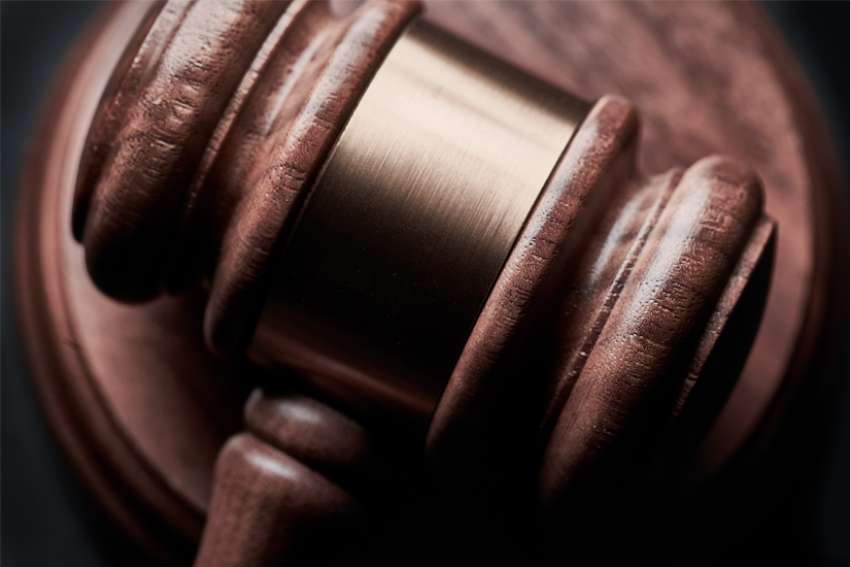Irene Deschenes is on Outrage Canada’s board of directors, which launched a new website (outragecanada.ca) Nov. 2. She was one of the victims of Fr. Charles Sylvestre, convicted in 2006 for sexually abusing 47 young girls between the 1950s and 1980s. Deschenes endured two years of abuse while she attended St. Ursula Catholic School in Chatham, Ont., in the early 1970s.
For parts of three decades, Deschenes has litigated against the Diocese of London after first reporting her abuse at the hands of Sylvestre in 1992, and in 1996 filing a civil suit settled in 2000. It was reopened after police reports about Sylvestre dating back to 1962 were uncovered in a diocese filing cabinet.
“That litigation was over my shoulder for 30 years,” said Deschenes. “It really stopped me from healing and moving on with my life, so that is why this is very personal to me. I don’t want anyone else to go through what I experienced.”
Outrage Canada is an evolution of the original Justice for Irene network that supported Deschenes through her legal journey. Its first goal is a call for the federal government to develop an independent national reporting centre to take complaints of sexual abuse crimes against children.
Next, Outrage Canada seeks the development of a national inquiry, such as those held in other countries.
When Deschenes first stepped forward to speak about her abuse, she approached the London diocese’s sexual abuse committee. In 1992, the Canadian Conference of Catholic Bishops (CCCB) first launched From Pain to Hope in response to abuse in the Church.
“The priest gave it to me, I read it and I looked at it,” said Deschenes. “I thought, ‘this is awesome. They are going to treat me with respect. They are going to believe me, and they will support me on my healing journey.’ None of that happened.”
The Catholic Register spoke to Fr. John Comiskey, the moderator of the curia, a bishop’s delegate and vicar general for the Diocese of London. He agreed with Outrage Canada “that the Church should be accountable, and each diocese takes its responsibility seriously.” In 1989, the diocese was one of the first in Canada to implement a sexual abuse policy and form a Sexual Abuse Committee.
“We have had a committee of people including priests, canon lawyers, civil lawyers, children’s aid society workers, police officers, educators involved in cases that come to the diocese,” said Comiskey. “We have advertised for a long time that there is a contact person to call if someone has to bring forward a case, a complaint or just to ask questions.”
In most occurrences, cases reported to the diocese are historical in nature, said Comiskey. Contemporarily, people who said they have experienced sexual abuse directly share their testimony with law enforcement.
In October 2018, the CCCB introduced Protecting Minors from Sexual Abuse: A Call to the Catholic Faithful in Canada for Healing, Reconciliation, and Transformation, which “builds on the work of From Pain to Hope as well as the work done by many other dioceses since the publication of From Pain to Hope,” said Comiskey.
“The first (change) is that it reflects the latest laws in Canada. Secondly, we have a better understanding of the whole problem of sexual abuse and what leads up to it. We are not just dealing with victims anymore. We are proactively working on the educational level to prevent it from ever happening again. Thirdly, we have a much better way of approaching cases that are victim-centred. We give them all the leeway, the tools and what they need so they can seek justice.”
Gatineau Archbishop Paul-André Durocher said other safeguards for prevention have arisen in Canada, such as “all candidates for priesthood are vetted through psychological testing and serious evaluations. Volunteers and personnel are screened at the parish level and diocesan level as a general rule. All these efforts that did not exist 20 years ago are now being put in place. ... everyone is working on this area of safeguarding.”
Deschenes claimed that even though policy documents have been updated, nothing has really changed.
“It doesn’t matter what the words are, it is not how they treat survivors,” said Deschenes. “I’m not focusing on my own story. People could say, ‘that was 30 years ago.’ I could say, ‘yeah that was 30 years ago,’ but I can tell you of somebody that came to me two months ago and had the exact same experience.”
Comiskey “categorically rejects” the notion that the Church has made no progress in better protecting children. Durocher said Pope Francis, in particular, has “provided remarkable leadership in this area” as he called for a global Church conference to speak about this issue openly. He has introduced legislation to criminalize bishops for covering up cases. He also established an international pontifical commission to draw up new global standards to protect minors.
If Outrage Canada succeeds in lobbying for a federal inquiry, Durocher said “the bishops of Canada would participate fully.”


